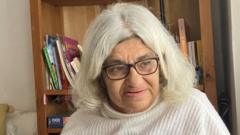To reduce inequality and achieve the SDGs in Latin America and the Caribbean
CHILE / USA, (ECLAC/PAHO) – The Economic Commission for Latin America and the Caribbean (ECLAC) and the Pan American Health Organization (PAHO) on Monday, urged the countries of the region not to sideline health on the public agenda during the current post-pandemic period. Investment in this sector should be a priority, both because of the duty to ensure the population’s right to health and because of its fundamental role in achieving inclusive social development in Latin America and the Caribbean, they stated in a new joint report.
Six years away from the deadline for fulfilling the 2030 Agenda for Sustainable Development, ECLAC and PAHO presented the policy document The urgency of investing in health systems in Latin America and the Caribbean to reduce inequality and achieve the Sustainable Development Goals (SDGs), in which they point out that the COVID-19 pandemic, coupled with the development crisis in Latin America and the Caribbean, has created a situation that threatens the achievement of the SDGs in the region.
“Inequalities in access to health, gaps in the quality of care received, and high out-of-pocket expenses incurred by the population not only underscore the urgency of increasing public health spending, alongside efficient resource management, but also reveal the need to advance in the financial sustainability of investments to strengthen the resilience of health systems,” state ECLAC and PAHO. To achieve this, it is essential for countries to move forward with social agreements supported by strong fiscal pacts.
Although public health spending in Latin America and the Caribbean increased by 25 percent between 2000 and 2014, the average spending was 4.5 percent of GDP in 2021, still below the target of at least 6.0 percent of GDP proposed by PAHO/WHO.
In 2021, only 61 percent of total health spending in the region corresponded to public spending, highlighting the significant role still played by private spending in the countries, with out-of-pocket spending being the main component. On average, the report says, households in the region had to cover more than 28 percent of total health spending with out-of-pocket payments in 2021, and in 11 countries out-of-pocket spending was even higher than 35 percent. This figure is concerning, as out-of-pocket expenses perpetuate inequalities in access and quality of care and can translate into catastrophic or impoverishing expenditures.
The document was presented by José Manuel Salazar-Xirinachs, executive secretary of ECLAC, and Jarbas Barbosa, director of PAHO, with comments from Ximena Aguilera, Chile’s minister of health.
“Today, Latin America and the Caribbean is facing a development crisis and the region is mired in three traps: low capacity for growth, high inequality and low social mobility and cohesion, and low institutional capacity and ineffective governance. In the health sector, chronic underfunding, fragmentation, and segmentation of health systems persist. Now, more than ever, essential transformations in the region’s development models are required, with health being key for expanding social protection and moving toward more productive, inclusive, and sustainable development,” José Manuel Salazar-Xirinachs, executive secretary of ECLAC said.
PAHO director, Jarbas Barbosa, underscored that “overcoming barriers in access to care, which today mean that nearly 3 in 10 people have unmet health care needs in the region, is fundamental to fulfilling the right to health and achieving universal health coverage.” He also emphasized that “countries must invest more and better, ensure financial protection for the population, and reduce out-of-pocket expenses and catastrophic expenses to improve health, as well as address inequities and poverty. The pandemic has taught us that we need stronger and more resilient health systems, as well as social protection systems to safeguard the health and well-being of the population.”
The latest ECLAC projections indicate that only 22 percent of the SDG targets will be met by 2030, while 46 percent of them require faster progress to be achieved on time, and 32 percent will not be achieved.
The setback in achieving the SDGs due to the pandemic and cascading crises “is evident in key health indicators, such as maternal mortality, immunization coverage, and others associated with malnutrition and mental health,” the joint document notes.
The high inequality resulting from the social determinants of health in the region is reflected, for example, in the fact that the lowest-income quintile has a maternal mortality rate more than seven times that of the highest-income quintile. The same is true for under-five mortality: the most disadvantaged income group has around 4.5 times the risk of dying compared to the most economically advantaged group.
Again, the same holds true for chronic noncommunicable diseases: the most disadvantaged group has a 46 percent higher risk of dying between the ages of 30 and 69 from these diseases compared to the most advantaged group. Lastly, data from 2019 indicate that the mortality rate attributable to unsafe water, poor sanitation, and lack of hygiene is nearly six times higher in the lowest-income quintile, highlighting the impact of living conditions on people’s health.
Both ECLAC and PAHO highlight the relevance of the primary health care strategy, considering its three components – integrated services and essential public health functions, multisectoral action, and social participation – as part of the transformation of health systems to reduce inequalities and address setbacks in the implementation of the 2030 Agenda. A comprehensive and intersectoral approach that coordinates health and the other components of social protection makes it possible to address the social determinants of health.
“It is crucial to consolidate universal, comprehensive, sustainable, and resilient health systems that ensure universal access and coverage, provide timely and quality care to the entire population regardless of their ability to pay, and have solidarity-based and sustainable financing mechanisms and adaptability to changes and crises,” the document concludes.
The report presented [today] is the third publication prepared jointly by the two institutions, following the 2020 and 2021 documents dedicated to analyzing the impacts of the COVID-19 pandemic.
The post ECLAC – PAHO to prioritize investment in health appeared first on Caribbean News Global.

